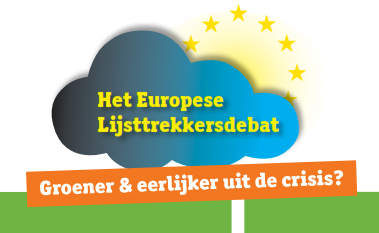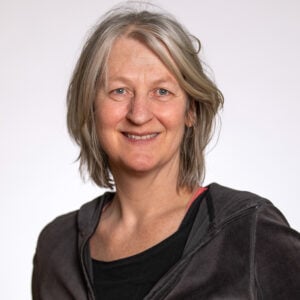
A greener and fairer way out of the crisis?
In the run-up to the European elections, SOMO and partners in the Fair Green and Global (FGG) Alliance are organising an electoral debate in De Brakke Grond in Amsterdam (23 April). Sandra Rottenberg will be chairing a session where current European Parliament (MEPs) and new candidates will discuss and debate the question: “How can Europe find a greener and fairer way out of the crisis?” All of the political parties that are running in the European elections will be represented.
The debate will have four sessions, with each session introduced by an expert on the subject who will present the main issues. The expert will also outline key questions and identify where the EU should take a strong position.
Energy
In the energy, climate and environmental policy debate, for example, the expert will outline the main issues around the use of shale gas and biofuels. Which options are both sustainable and possible? Which option is a real or pragmatic solution?
Free Trade
How is the free trade agreement between Europe and the US actually understood, and what are the probable effects or implications of harmonizing these trade regulations for our everyday lives? How does Europe’s democratic decision-making process actually work? Are there any alternatives to the European trade and investment policies as they exist currently?
Dirty supply chains
The poor and dangerous working conditions in Bangladesh have revealed that Europe’s trade with other countries still has a long way to go towards genuine corporate responsibility. How do MEP candidates envisage creating transparency within European companies alongside the steps needed to ensure decent wages, fair and safe working conditions, throughout the entire supply chain? Can Europe force big companies to clean up their supply chains?
Tax evasion
The fourth topic explores how the EU is losing staggering amounts of income ever year through tax fraud, tax avoidance and offshoring. Is it enough to call for the more transparent monetary flows or should there be more drastic demands? Should tax evaders be exposed and should letter box or shell companies be forced to come clean? How much more money would public coffers in Europe have if tax evasion was deemed illegal?
Tickets and information
Tickets(opens in new window) for this debate (23 April)(opens in new window) are now on sale. Regular updates, lists of participants and other information can be found here (opens in new window) (Dutch only).
More information about the FGG Alliance
Fair Green and Global (opens in new window) (FGG) is the name of the Alliance within which six civil society organisations currently cooperate. Both ENDS is the lead agency, and the other five member organisations are ActionAid, Clean Clothes Campaign, Friends of the Earth Netherlands, SOMO and the Transnational Institute.
The FGG Alliance aims to:
- Develop, promote and expand inspiring examples of sustainable development in developing countries.
- Promote corporate social responsibility, particularly among Dutch companies that operate in developing countries.
- Revise European trade and investment policies, so as to ensure that future investments will benefit local communities and their natural environment in developing countries.
- Reform the policies of large banks and political organisms such as the World Bank, to facilitate the financing of (infrastructure) projects that benefit indigenous peoples and their environment in developing countries.
Do you need more information?
-

Esther de Haan
Senior Researcher
Partners
-
FGG – Fair, Green and Global Alliance
Related news
-
 Joint letter: Ban EU trade with Israel’s illegal settlementsPosted in category:News
Joint letter: Ban EU trade with Israel’s illegal settlementsPosted in category:News Lydia de LeeuwPublished on:
Lydia de LeeuwPublished on: -
 CSDDD Datahub reveals law covers fewer than 3,400 EU-based corporate groupsPosted in category:News
CSDDD Datahub reveals law covers fewer than 3,400 EU-based corporate groupsPosted in category:News David Ollivier de LethPublished on:
David Ollivier de LethPublished on: -
 Additional evidence filed against Booking.com for profiting from illegal settlementsPosted in category:News
Additional evidence filed against Booking.com for profiting from illegal settlementsPosted in category:News Lydia de LeeuwPublished on:
Lydia de LeeuwPublished on:

